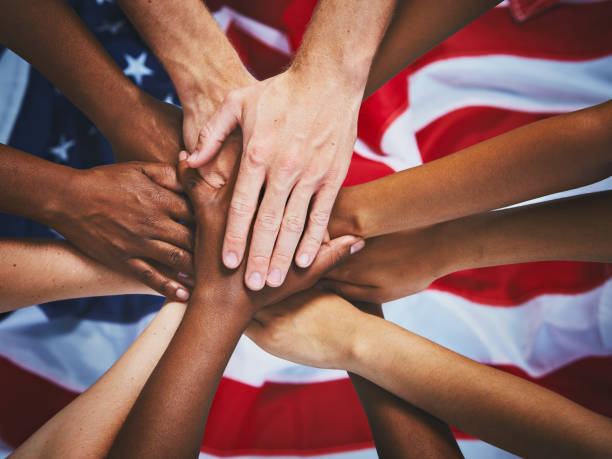“We are only as blind as we want to be.” – Maya Angelou.
The hardest part of the discussion of race is that so many people these days think we are talking about it too much. The idea of white supremacy makes people uncomfortable (me included) and some of you might want to stop reading this article right now–I encourage you to keep reading anyway to learn where you fit in this discussion .
One dictionary definition of racism is: “Prejudice, discrimination, or antagonism directed against a person or people on the basis of their membership in a particular racial or ethnic group, typically one that is a minority or marginalized.”
Interestingly enough, I’ve heard it said–”oh yeah, I support the ‘orange man’, however, I’m not a racist and/or there’s no racism in this country.” Sorry, but as the expression goes–”birds of a feather flock together”. This previous President has blatantly shown his colors many times regarding racism–to the point of supporting Putin’s ethnic cleansing of Ukraine. And amazingly enough, some may still be in denial even after the recent mass shooting of eight black folks in Buffalo, New York
As Maya Angelou wisely pointed out “when people tell you who they are, believe them”.
Denying Racism Doesn’t Work
The act of denying racism is inherently racist–this denial is the action that continues to normalize mistreatment and further divides this country. Though this is no new realization, it’s even more relevant in today’s climate. With a generation having access to information constantly through both social and traditional media, it’s nearly impossible to be blind to prejudice, stereotyping, and blatant racism against people of color. Unless you are living in confinement without technology or subjected to a cult that isolates you from society, you have witnessed an unarmed Black person being killed on camera needlessly. You have seen statistics that show blatantly unequal treatment by judges, juries, or companies. There are an abundance of documentaries and films on many streaming platforms and television that deal with racism head-on. It has also been discussed on popular sitcoms such as “The Office’, “Black-ish”, and “Criminal Minds”. Sadly, racism is all too alive and well these days. .
However, we are reminded: “Love your neighbor as yourself–there is no commandment greater.” Mark 12:31
So racism, unlike unconscious bias, is conscious. A racist can be well aware of his or her bias and expresses it openly towards an individual, or individuals, he or she is prejudiced towards.
Bottom line–racism is always negative, in that it is verbalized to oppress or dehumanize an individual based on their ethnicity. An unconscious bias, instead, can often be expressed to give an individual an advantage, based on often an unspoken prejudice. For example, a CEO might hire a candidate for a high ranking position because that candidate is tall and the CEO has an unconscious bias favoring tall people that views them as superior, despite concrete evidence that a shorter candidate may have been better qualified. The tall candidate is benefited by the CEO’s unconscious bias, whereas with racism, the target of the racist is always a negative result. .
Bias is broad and racism is specific. Unconscious bias is by definition unknown and racism is very often known. While both are insidious and potentially very destructive within a work environment, training designed to help overcome unconscious bias must first begin with acknowledging that this deal exists, to some degree, in everyone. Confronting Our Bias In 2020, more than ever, race and discussion of racism entered our lives in a very open way (largely due to the George Floyd killing) in which we had to confront our thoughts and feelings about how people show up at work, in our circles of influence, communities, etc. So, as we try to navigate this world in 2022, we must continually make a point to educate ourselves and be proactive and pursue interactions and open discussions with people different from us.
There must be recognition of our biases and recognition that racism is a deep structure or systematic problem that will not be fixed overnight. Our role is to understand the difference and educate ourselves.
Recently I learned of an impressive program called Braver Angels–a bipartisan network of leaders and organizations committed to reducing polarization and bringing people together from across the divides to rethink currently polarized issues and show why reducing polarization is an urgent priority. There are many events available through this organization to plug into–to listen to, watch and read–check it out,
Let’s support and vote for light and love, Warriors!.
Covid Humor: Every time I take my mask off I can’t help comparing it to taking my bra off–what a relief–right ladies?

